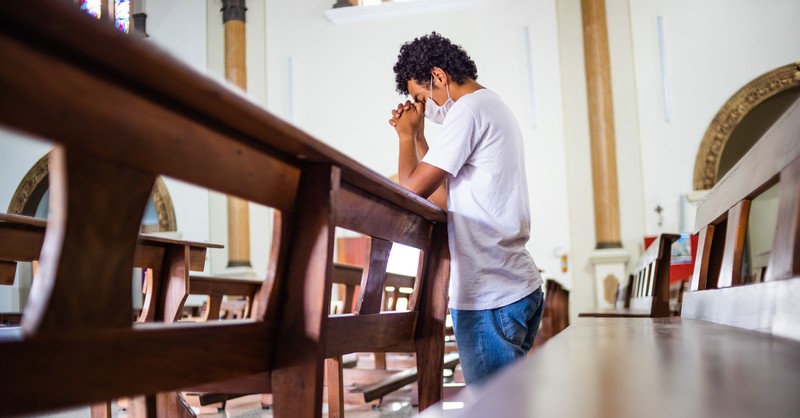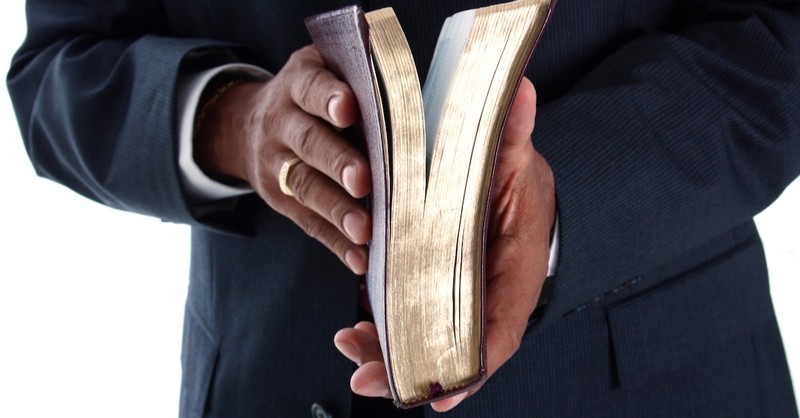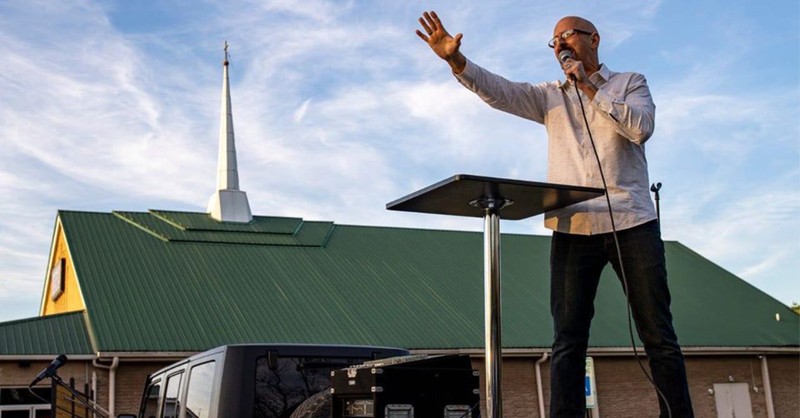
Everything came to an abrupt end.
Twenty four weeks into our new church plant, we received a message from the school where we hosted our Sunday morning services, “We’re sorry but you can’t use the facility for two weeks due to needing to clean for COVID-19.” Two weeks turned to three weeks. Three weeks turned into a Stay At Home Order from our Governor. Not only couldn’t local churches meet, even going out for unnecessary things or visiting others would be prohibited. With no other plan in place, we started to stream our messages online, but wondered how we would go forth with the mission God laid on our heart, to help those in our county experience the love of God and develop their purpose.
In early June, our Governor started to release some of the restrictions that stopped churches from meeting. We slowly started to see churches reopening, some with heavy restrictions and others with none. Simultaneously, we were watching as Christians worldwide would speak over social media about what they feel churches should be doing. Some would proclaim that churches who reopen “don’t care about the people.” Others would applaud pastors who defied the government and stood up for their rights to worship. Even within our own church, the opinions of the members were wide-stretched, condemning, and caused great division. Yet, with much prayer after being closed for four months, we reopened our church.
As pastors, we were able to see this entire situation from a different perspective than most churchgoers. Not only do we have the responsibility to share the gospel, we are also called to care for those who are under our guidance.
With this being said, we would like to share 7 things that we believe your pastor wished you knew about the church’s response to COVID-19.
Photo Credit: © Jack Sharp/Unsplash

1. Pastors are under an extreme amount of pressure.
Everyday pastors are forced to answer questions about their COVID-19 response. From church members quoting scriptures with a sense of condemnation about the church “choosing fear,” to social media threads of pastors and congregations becoming infected, it seems everyone has an opinion. Debates over masks, temperature checks, if online services are really spreading the gospel, are constant and causing great division among the body. Everyone has an opinion on what the local church should be doing. However, ultimately, it falls on the pastor and the leadership to make the final call.
Although it would seem they should be the strongest in the room, your local pastor has to reconcile the voices of their congregation, their church leadership, their overseers, social media critiques, government officials, the enemy, and the Lord. Even before COVID-19, some of the biggest headlines shared about pastors had to do with them taking their own lives. Pastors struggling with severe depression is a common occurrence. The everyday pressures of helping people spiritually, listening to everyone’s personal problems, maintaining their staff, and balancing their own personal life, and keeping up with emotional/spiritual battles are too much for many to bare. The current pandemic adds an extra amount of pressure that no pastor has been prepared to handle. More than ever, they need the church to gather around them in prayer versus criticism.
Remember your leaders, those who spoke to you the word of God. Consider the outcome of their way of life and imitate their faith (Hebrews 13:7).
Photo Credit: © Getty Images/4maksym

2. There is no one size fits all method.
When it comes to churches reopening, there is no perfect model. Each church, state, county, and denomination will have their own rules. For instance, the local United Methodist Church close to our home is not allowed to sing, as their denomination has prohibited it. In other words, the pastor has no choice in the matter and must follow the rules set in place. In the same way, there are some parts of our country that has an increasing rate of COVID-19, while our area has few cases. The building being used by the church may also have regulations and the ages of the congregants may also play a role in how to move forward.
With this being said, it would be unwise to treat all churches the same, when it comes to how to move forward. The various regulations and unique makeup of the church itself must be taken into consideration. Your local pastor must balance all of these factors to make wise choices for any given Sunday.
Photo Credit: © Getty Images/Jair Ferreira Belafacce

3. Pastors must do what the Lord has called them to do.
Being a pastor is not for the faint of heart. They are called to watch over those in their “flock” and will be held accountable for their actions (Acts 20:28, Hebrews 13:12). During this pandemic, pastors must seek the Lord for council as they are ultimately accountable to Him. Some would argue, shouldn’t God be speaking the same to every church? To that, we would argue yes and no. The overall Great Commission remains the same for all. The method of winning souls and making disciples, like in any other season, will be different and unique for each ministry. When pastors seek the Lord, they are to do so in a manner of complete surrender to His voice, and not the voice of the parishioners. In other words, pastors must be Spirit-led not swayed by other voices.
This will undoubtedly cause some to be offended as the pastor is not doing what they deem is best. However, a praying pastor can remain steady and confident when they have sought the Lord for how to lead the church during the pandemic. Church leaders must trust that God knows all things, so whether He leads them to be virtual for the next year, close the ministry, or do business as usual, they must trust the Lord. Ultimately, the church and its people belong to Him and the pastor should follow His lead on all matters, even if it looks different than the church up the street.
“Obey your leaders and submit to them, for they are keeping watch over your souls, as those who will have to give an account. Let them do this with joy and not with groaning, for that would be of no advantage to you.” (Hebrews 13:12)
Photo Credit: © Getty Images

4. Your local church is a business entity.
There is no way around this. Although many cringe at the phrase, “Church is a business,” there is no legal church that is not a business. In fact, step one of planting any church is to go through one’s state to make it a business entity. Obtaining a business ID number, maintaining a business bank account, and having a record of expenses are the minimum requirements of running a church. Additionally, your local church has to have insurance to cover accidents, lawsuits, their building, and more. Many insurance policies have forewarned local churches that they may or may not be covered for COVID-19 related incidences depending on what happens, and the measures that are put in place. One popular church insurance company sent churches an extensive list of what churches should do if they want to insure they are covered to include “maintaining 6-foot distance from other parishioners in all directions, sterilizing all surfaces, using hard-cover seating options instead of fabric-covered pews to expedite cleaning, removing physical holy books or hymnals from use, and posting signage or projected messages to clearly indicate expectations for worship attendees.”
Additionally, as a business within a given state, churches may find themselves having to adhere to fines and penalties for not following state regulations. Although some have made the choice to rebel against local ordinances, others try to follow the guidelines closely to maintain the integrity of the church and to not lose their ability to have worship services in the future. Overall, pastors are forced to make choices that are not just good for the current pandemic but the longevity of the church. A poor choice can be the difference between a lawsuit or the church not being able to recover financially in the future. For this reason, many churches have decided to follow their governing state’s guidelines, not because of fear, but out of wisdom and to honor those who are in authority.
“Let everyone be subject to the governing authorities, for there is no authority except that which God has established. The authorities that exist have been established by God.” (Romans 13:1)
Photo Credit: © Getty Images/Milkos

5. Your pastor is the representative of their church.
If there is a coronavirus outbreak in your local church, news reporters will want to speak to the pastor. They won’t be interested in speaking to the member who complained until the church reopened or has a strong conviction about masks. Your local news station won’t even care as much about who started the outbreak or their health. They will look to the pastor for answers. Why did they open? What protocols were in place? How will they keep it from happening again?
Just like the Lord will look to them on how they led their flock, the world will praise or blame them for whatever happens. Likewise, the church itself will have to deal with the repercussions of their choices as it pertains to COVID-19. Thus, church goers must come to recognize that their opinions may be valid but ultimately the pastor will be held accountable.
Photo Credit: © Facebook

6. Pastors are coming together to discuss strategies.
All over the world, pastors are coming together to pray and discuss strategies for navigating the pandemic. Leaders are looking past church denominations, racial differences, and more to learn how they can be more effective. We cannot count how many meetings, forums, and conferences we’ve attended to try to see the church remain steady in the midst of such trials. From pastors learning social media strategies together to discussing what they’ve learned as they reopened, church leaders realize how much they need each other. Thus, most pastors are not making choices “in a box,” but with an abundance of counsel.
It is likely that your church leaders have been in constant communication with others on how to ensure you stay spiritually strong, and that the church can move forward during the pandemic. For the first time ever, megachurch pastors and churches with 20 people are all on the same playing field, and they are all reaching out to one another. It is likely that your local pastor is not out to push their own agenda or just make money off of you, they truly care about seeing you grow in the Lord, especially during this time.
“For by wise guidance you can wage your war, and in abundance of counselors there is victory.” (Proverbs 24:6)
Photo Credit: © Getty Images/Banana Stock

7. The Church is not dead.
The church is not dead! The methods to winning souls for Christ may be altered, but God’s word is still going forward. Never has there been a time where Sunday morning social media feeds are filled with churches from all denominations. Bibles are selling out at local stores. Churches are not declining in membership but growing! Recently, we heard of a church that has grown from 100 to 250 since the start of COVID-19. In fact, our church has been blessed with a new building during the pandemic! God is still on the move and people are still hungry for the gospel. At a time where everyone can see that tomorrow is not promised, God is moving in the hearts of people to turn back to the Lord. Although we believe this is a time of God shifting the Church to return to the message of the gospel, it is also one of great creativity, the coming together of church leaders globally, and remembering the importance of the house of the Lord.
Overall, your local pastor needs prayer more than ever. As the Lord continues to show your family the best way to navigate COVID-19, pray the same for your local pastor. In this season, the weight of their choices can mean life and death for the members that they care for sincerely. Although we may have strong convictions, let us do all we can to guard our hearts and not complain as they follow the Lord’s lead. May the Lord continue to bring peace to your home and keep you safe during this time.
Photo Credit: © Getty Images/Ridofranz
Originally published Tuesday, 22 September 2020.









